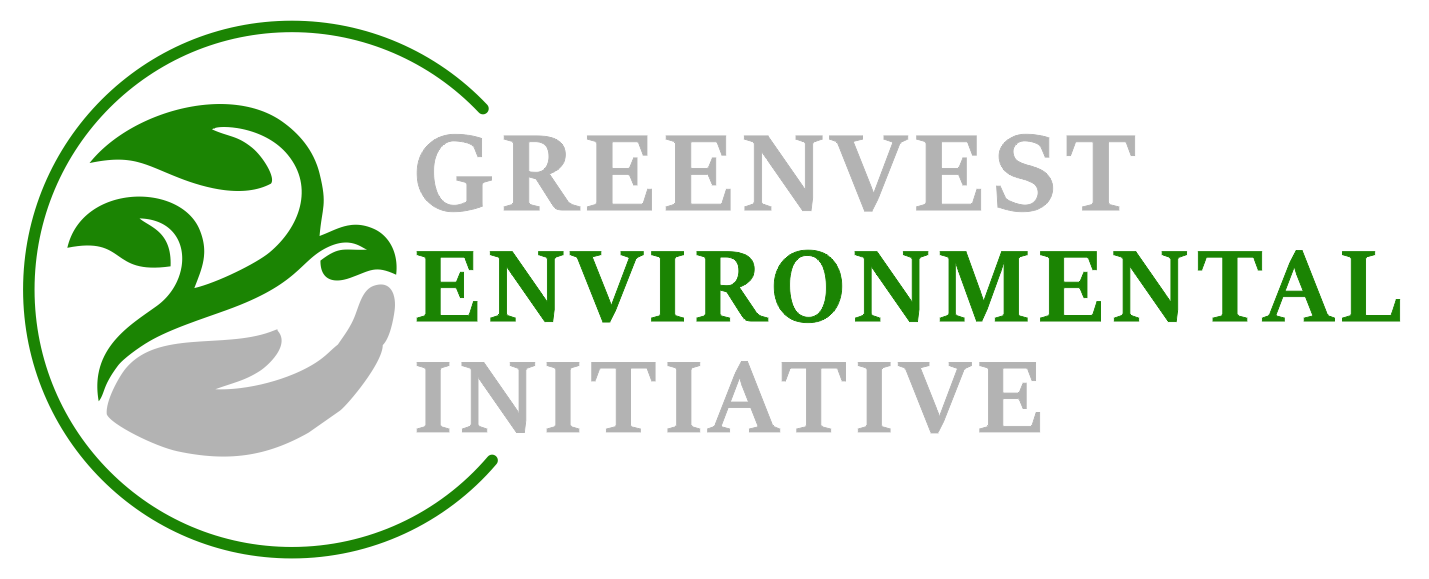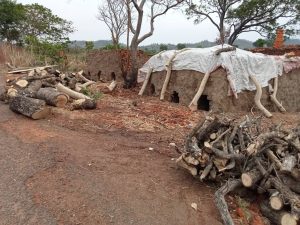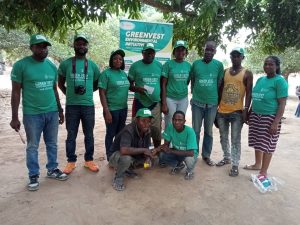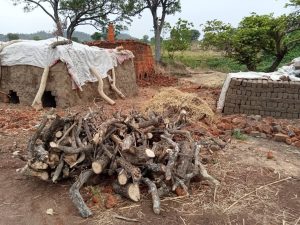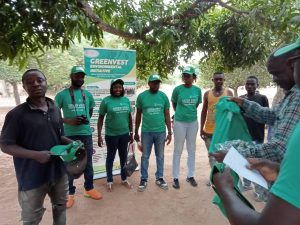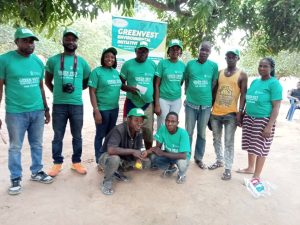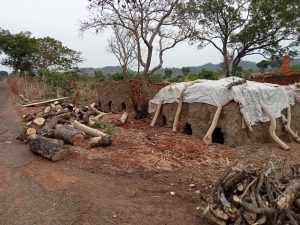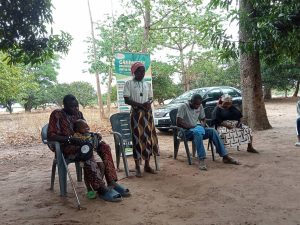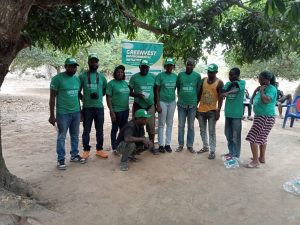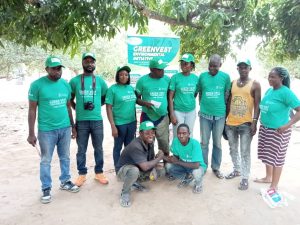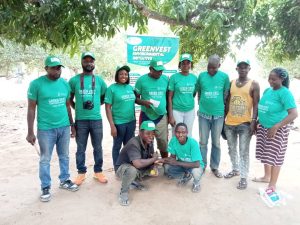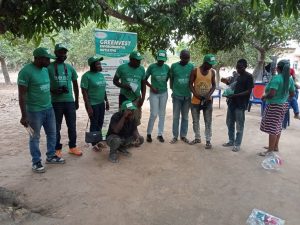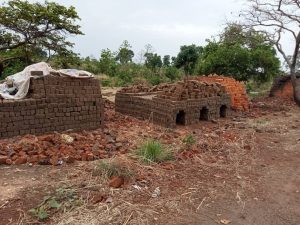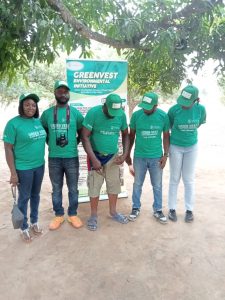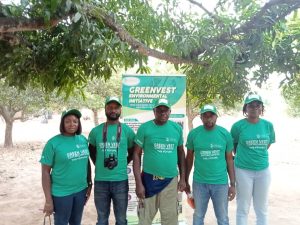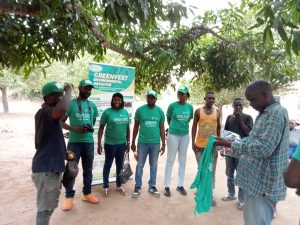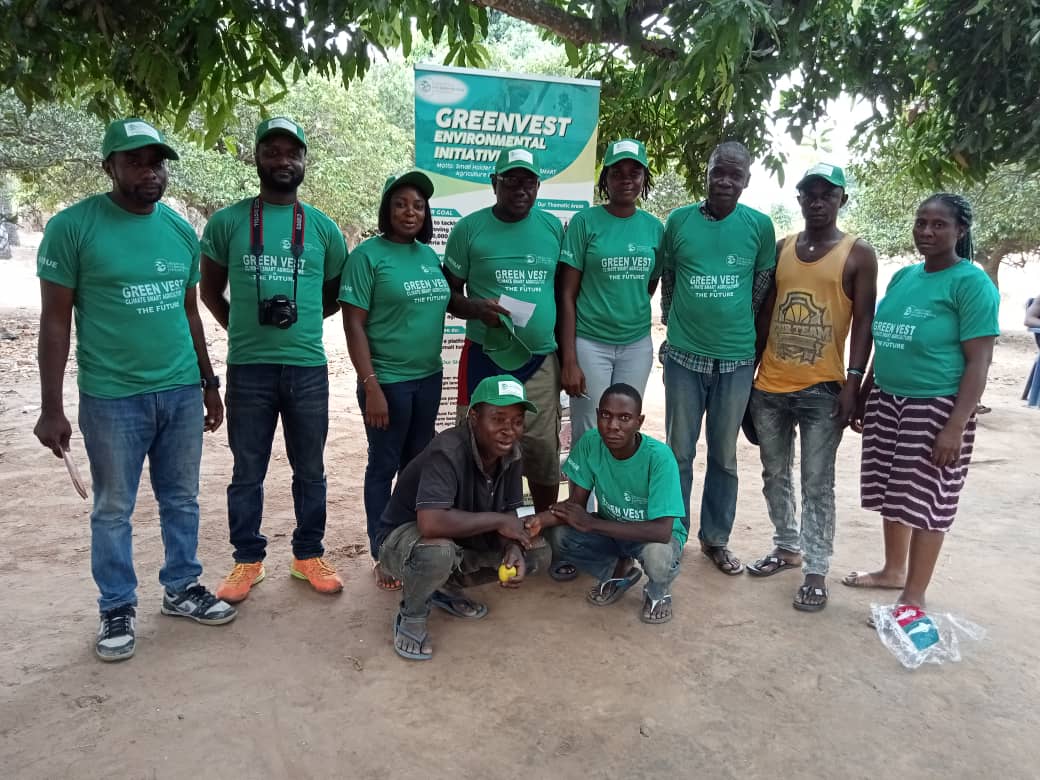
The Nigeria Smallholder Farmers climate smart agriculture project – NARRATIVE REPORT
Activity: Community Entry, Pre-inception and advocacy visit to pilot project implementation Areas
Date: 10th -11th March 2023
INTRODUCTION
Sequel to the recently completed Baseline and Needs assessment conducted to validate the challenges Knowledge, Attitude and practices of smallholder farmers to cope, mitigate and adapt to the impacts of climate change on agriculture and food security and as a fall out of our 7 years strategic plan to implement in 18 communities across 6 LGAs in Benue state Nigeria; GREENVEST ENVIRONMENTAL INITIATIVE (GVEI) has piloted the Nigeria smallholder farmers climate smart agriculture project in PIKA and IGBOR communities in GWER and GBOKO LGAs respectively, with the aim of “Strengthening capacity of smallholder farmers, member households, beneficiaries and partners on nature-based solutions, climate smart Agriculture (CSA) and carbon credit marketing.
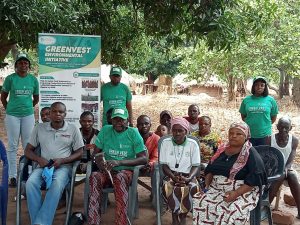
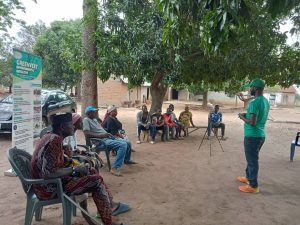
(GVEI in IGBOR Community) (GVEI Team in PIKA community)
Achievements
The GVEI team introduced the project goal (Help to tackle food insecurity improving productivity and returns of smallholder farmers in Nigeria by 2030) to the community leaders, gate keepers and potential stakeholders which cut across traditional and religious leaders, school heads (Principals and head masters of secondary and primary schools respectively), Women leaders and women groups, youth leaders and youth groups, charcoal producing households and smallholder farmers.
The targeted population strategically selected to enable our community entry and gain access to implement our programs in the selected locations in Benue state. The various groups shared common challenges including lack of farm inputs, seedlings, crop management techniques and unsustainability of such programs from other nongovernmental organizations over the years; which validates the outcomes of the needs assessment earlier conducted.
The community members through gatekeepers have indicated willingness to commit time, energy and resources to benefit from the impacts of the project.
Challenges
However, community gate keepers expressed the fear of any form of financial extortion, looking at their previous experience from other programs where beneficiaries were apprehended as a result of noncompliance to other financial obligations imposed by other programs that were earlier introduced by other NGOs in the communities.
The community gatekeepers also expressed fear of improved seedlings compatibility with soil type which can easily be addressed through soil testing, analysis, preparation and crop management as a key component of our small holder farmers- Nature Based Solutions (NBS), Seed and seedling banks (SSB) and Village Savings and Loans Associations Schemes (VSLAs) Projects which consolidates the Nigeria Smallholder Climate Smart Agriculture Program.
RISKS
The security situation in the communities is non compromised. The traditional leaders affirmed the presence of local vigilant and security groups.
CONCLUSSION
The Nigeria smallholders’ farmers climate smart Agriculture Program was adopted by the gatekeepers and community leaders in PIKA and IGBOR communities in GWER and GBOKO LGAs respectively.
The GVEI team looks forward to visit the two communities PIKA and IGBOR to carry out Sensitizations and Awareness creation on the impacts of charcoal production deforestation to food security and climate change in conflict and climate impacted communities.
PHOTO GALLARY
By: ASAN JIMENGI JUDE
